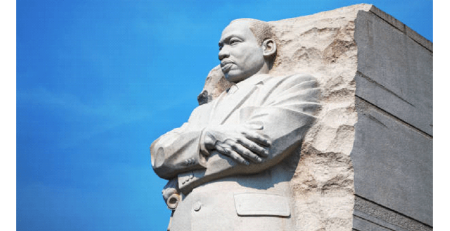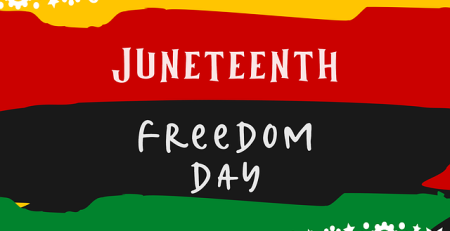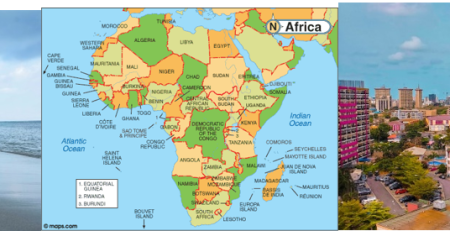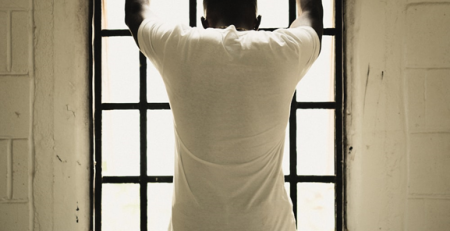Related Posts

MLK Day and the “King Thing”
For as long as I can recall, I have worked for companies that did not give Martin Luther King... read more

BHM 2024: How Did They Get to Be Billionaires?
Well, the short answer of course is – thank the economy. The investments of multi-millionaires surged in the 2020’s,... read more

It’s Juneteenth!
I’m going to start by embarrassing myself – I was many years old before I ever heard of Juneteenth.... read more

Africa is a Beautiful Continent
I was reading a headline recently about the coup in Gabon and once again I noticed that Africa only... read more

Living Large in the 21st Century – Five Black Millennial Women
As part of Women’s History Month, I wanted to do a blog on five black millennial women who are... read more

A Hook Up, A Hand Up
I saw You People, with its star-studded cast – not just Eddie Murphy – and it definitely had its... read more

Christmas
For most of my adult life, I have watched "How the Grinch Stole Christmas" every December. Strangely enough, I... read more

A Mother’s Love
I saw this in Quora.com and it hit me very hard. When I wrote Visitation about a woman visiting... read more

Inmates with Dementia: The Unseen Impact of Aging Behind Bars
In 2024, the last of the Baby Boomers, including myself, will turn 60. As the American population of baby... read more

My Wish for Christmas: Love for Others, Peace on Earth
Over the past 3 days, I have sent out 60 Holiday Cards. It was quantity over quality. I did... read more

Columbus Day is a big holiday in many American cities with a huge number of Italian Americans. They even have parades. When a movement was put in motion to get rid of the holiday, the Italian-American community was infuriated. So, some cities still have Columbus Day. However, the exploits of Christopher Columbus are not taught in American History today as I learned it as a child.
Up until a few decades ago, history was written by the winners. Perhaps it still is. There is a big fight going on in our nation about the portrayal of Southern war figures as heroes, given that they lost the war, and the purpose of the war was, shall we say, anti-American. There are monuments to these individuals throughout the South, and these monuments are being fought, as images of the Confederate flag are being fought because they represent “the losing side”. To white Southerners, these things represent heritage and pride. And I get that. But they represent something more. They represent a time and a viewpoint where enslaving black people was considered a positive thing. It was extremely profitable, and it freed many white people to live a more leisurely life. It was a time when black people were beaten and sold, families were broken up, and the work was often harsh and criminal. It was a time when black women were raped not just for pleasure, but often for profit. The children were saleable property, picking cotton by the time they were 3-4 years old. Enslaved people lived in shacks with wooden chimneys that caught fire, leaking roofs, holes in the walls. So the monuments and the Confederate flag, while they represent pride and honor to some white people, represent horrific brutality to others.
But what does this have to do with Columbus. Well, let’s look back to 1992, the quincentennial of when Columbus “discovered America”. Before then, elementary school children were taught a very special poem about Columbus:
In fourteen hundred ninety-two
Columbus sailed the ocean blue.
He had three ships and left from Spain;
He sailed through sunshine, wind and rain.
He sailed by night; he sailed by day;
He used the stars to find his way.
A compass also helped him know
How to find the way to go.
Ninety sailors were on board;
Some men worked while others snored.
Then the workers went to sleep;
And others watched the ocean deep.
Day after day they looked for land;
They dreamed of trees and rocks and sand.
October 12 their dream came true,
You never saw a happier crew!
“Indians! Indians!” Columbus cried;
His heart was filled with joyful pride.
But “India” the land was not;
It was the Bahamas, and it was hot.
The Arakawa natives were very nice;
They gave the sailors food and spice.
Columbus sailed on to find some gold
To bring back home, as he’d been told.
He made the trip again and again,
Trading gold to bring to Spain.
The first American? No, not quite.
But Columbus was brave, and he was bright.
In 1992, the movement to question what we had been taught for so many years reached a critical mass. Questioning statements that Columbus was a great explorer, that Columbus discovered America, that Columbus was revered when he went back to Spain. It was all lies. The best and most accurate statement about the lie: “Discovered” is just another way of saying “white people didn’t know about it until then therefore, it didn’t exist.”
What is worse about the poem is how it glosses over Columbus’ treatment of the Arakawa people. And here is what he wrote:
They took all, and gave what they had with good will. . . .
They neither carry nor know anything of arms. . . .
They are all of fair stature and size, with good faces, and well made. . . .
They should be good servants. . . .
The people are very docile . . . with fifty men they can all be subjugated and made to do what is required of them.
Because of Columbus and his settlers, the Arawaka were decimated. There were a million people when he arrived in 1492, living in the Caribbean, and Central and South America. By 1550, there were 500. Some were murdered, raped, tortured and dismembered, some were enslaved and worked to death, some starved, some committed suicide, and most succumbed to diseases brought by the Europeans. All for the sake of gold. Columbus not only made 4 trips to the Americas, he also served as governor of Hispaniola – Spain’s first colony in the New World – now Haiti and the Dominican Republic. At one point, his mismanagement of the colony was so complete that he was sent back to Spain in chains and stripped of his titles… but his case was heard in court and they sent him back to America.
So, why on earth is there a Columbus Day and why does it mean so much to Italian Americans? By 1891, Italians had begun to immigrate to the US and they were met with typical hatred and persecution. In March of 1891, six immigrants were acquitted of killing a police chief in New Orleans. The people of the city formed a lynch mob, shooting and killing nine of the acquitted defendants and other Italian suspects, hanging one on a lamp post and another on a tree. One man had over 40 bullets in his body. When the national news reported the story, the lynch mob was praised as justified vigilantes. In response, Italy broke off diplomatic relations with the US, and there was talk of war. In recompense, President Harrison agreed to pay some of the surviving family members an indemnity. Many newspapers criticized his move, which was done without Congressional approval. Yet, there was still disapproval from Italy that none of the mob had been prosecuted. So, in time for the 400 year mark of Columbus’ arrival, Harrison created a national holiday in 1892. The biggest celebration was in New York – the parade included 40,000 marching men.
Nearly 100 years later, as Native Americans watched the Civil Rights Movement, activists in the 1960’s formed the Red Power Movement. The protests of Columbus Day started in San Francisco in 1971 when several Native Americans declared a day of mourning. In 1977, at a UN conference, indigenous people from across the Americas – Argentina, Bolivia, Canada, Chile, Costa Rica, Guatemala, Ecuador, Mexico, Nicaragua, Panama, Paraguay, Peru, Suriname, the United States, and Venezuela – asked that October 12th be set aside to recognize them.
We often don’t think about how global the situation is, where the lands and resources of indigenous people – outside of Africa – have been ravished by colonists and settlers. Native Americans are not the only people who struggle with discrimination and threats to their culture, language and way of life. Not the only ones pushed off of their lands. Not the only ones struggling with starvation and extreme poverty. There are 5000 “nations” of almost 500 million indigenous people in 90 countries around the globe and before 1977, many had no real rights at all. In fact, many countries did not want indigenous people attending the UN conference and persecuted them when they returned. When in 2007, a UN Declaration on the Rights of Indigenous Peoples was passed by the UN General Assembly, the USA, Canada, Australia and New Zealand all voted “no”. Perhaps they know that the crimes they committed against the indigenous people were so horrific and complete that the damage can’t be undone without challenging the dominant way of life.
So, America is split. In the areas with large Native American populations, the 2nd Monday in October is Indigenous People’s Day. And even President Biden has recognized it. But in the cities with large Italian-American populations, it is Columbus Day. Columbus represents the winners; the indigenous people are the losers. And now we are both here in this land… not going anywhere. Hopefully, we can find a way to get along. Maybe that will end up being the meaning of the day.